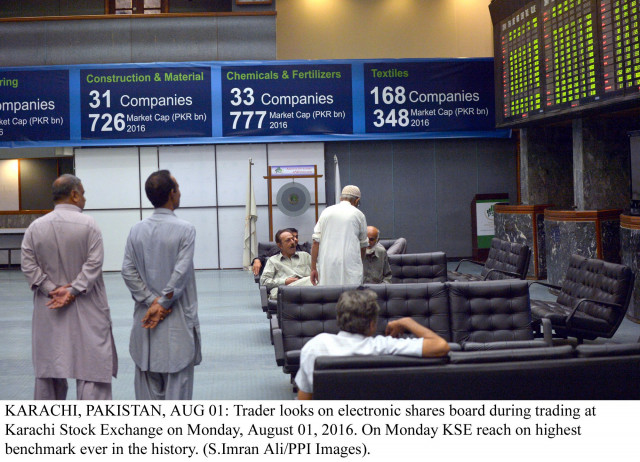Uncertainty prevails at stock market
Pakistan Stock Exchange’s benchmark KSE-100 index finished 363.89 points higher to end at 40,135.31

Pakistan Stock Exchange’s benchmark KSE-100 index finished 363.89 points higher to end at 40,135.31. PHOTO: ONLINE

Due to the closure of airspace, PIA flights from Islamabad to Gilgit and Skardu had also been cancelled. A ‘Notice to Airmen’ had been issued three days ago, informing about the airspace closure at different times on Sept 21, 22 and 24 due to the exercise. The closure of the M1 and M2 motorways at multiple points, between Kala Shah Kaku and Sheikhupura/Gujranwala on the M2 and near Peshawar-Nowshera, was announced by the National Highways and Motorway Police (NHMP) through a press release issued a day earlier. While the reason for the closure was attributed to “construction work” it was more than plain that Pakistan was all set to face any and all kinds of military adventure from across our eastern border. So, it was but natural for the stock market to behave the way it behaved on Wednesday last. As small investors ran for cover, the market fell by 1.41%, wiping out gains netted in the month of September. Panic selling was triggered by individual small investors, dabbling in “penny stocks” that usually generated the biggest volumes in the market.While some quarters blamed the tumbling stocks on the hype created by the electronic media about tensions between Pakistan and India, which gave the impression that a confrontation was imminent saner market watchers also pointed out that the market had been on a long bullish run, and that with the KSE-100 index crossing the 40,000-point level, a correction was due. On Thursday, however, the scene underwent a complete and positive reversal as equities rebounded with benchmark KSE-100 index covering most losses with across-the-board buying. Sideboard plays once again led the action albeit on increased volatility, while select index names in oils, cement and financials attracted fresh interest from value buyers. Meanwhile, one witnessed positivity prevailing with banking sector leading the gains. HBL and MCB were top performers of the sector. Automobile sector gained on the back of decline in yen prices. Honda Atlas Cars and Pak Suzuki Motor were major gainers in this sector. OGDC, POL and PPL in the exploration and production sector gained on the back of a surge in crude oil prices, as Saudi Arabia and Iran, along with another OPEC member Qatar, met at OPEC’s headquarter in Vienna to prepare for informal talks between OPEC members and Russia next week. On Thursday, 353 stocks closed higher, 78 declined while 10 remained unchanged. The value of shares traded during the day was Rs17 billion.
Foreign institutional investors were net buyers of Rs147 million during the trade session. But let us beware: foreign funds would divert their liquidity called ‘hot money’ into buying Pakistan’s stocks. This would merely increase prices of shares and be profitable for those who already hold stocks. On the flip side, since Pakistan merely comprises a fraction of investment for these funds, any hint of a bearish trend would mean they would swiftly liquidate their investment, translating into a momentous crash due to sudden drying up of liquidity at Pakistan’s exchange.
Published in The Express Tribune, September 26th, 2016.
Like Opinion & Editorial on Facebook, follow @ETOpEd on Twitter to receive all updates on all our daily pieces.














COMMENTS
Comments are moderated and generally will be posted if they are on-topic and not abusive.
For more information, please see our Comments FAQ